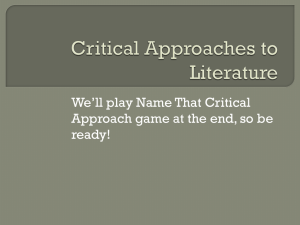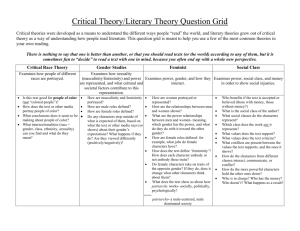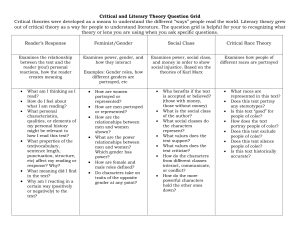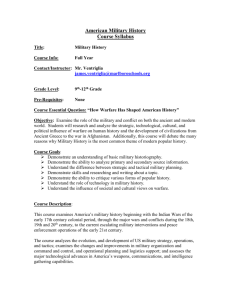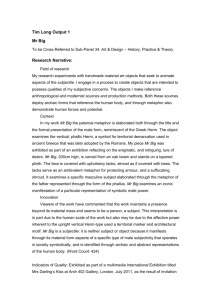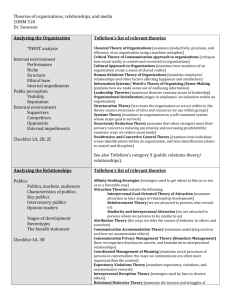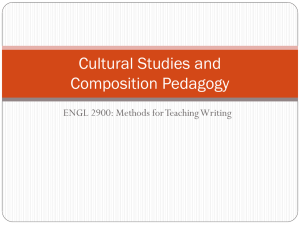PAD5632 G Busenberg - University of Colorado Denver
advertisement
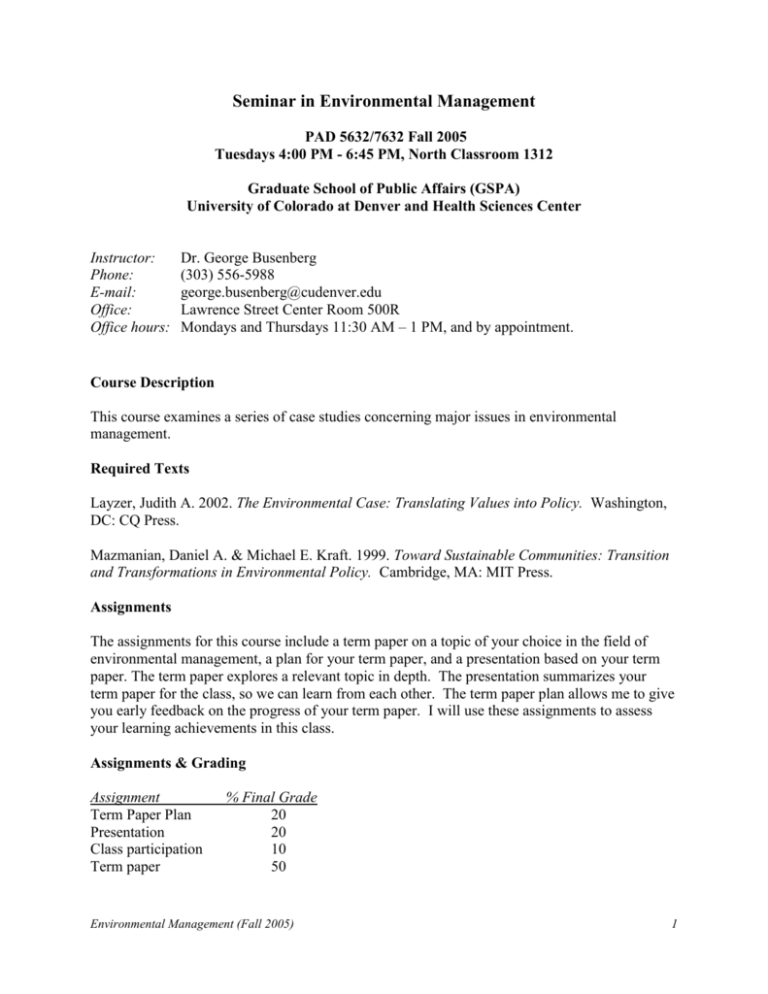
Seminar in Environmental Management PAD 5632/7632 Fall 2005 Tuesdays 4:00 PM - 6:45 PM, North Classroom 1312 Graduate School of Public Affairs (GSPA) University of Colorado at Denver and Health Sciences Center Instructor: Phone: E-mail: Office: Office hours: Dr. George Busenberg (303) 556-5988 george.busenberg@cudenver.edu Lawrence Street Center Room 500R Mondays and Thursdays 11:30 AM – 1 PM, and by appointment. Course Description This course examines a series of case studies concerning major issues in environmental management. Required Texts Layzer, Judith A. 2002. The Environmental Case: Translating Values into Policy. Washington, DC: CQ Press. Mazmanian, Daniel A. & Michael E. Kraft. 1999. Toward Sustainable Communities: Transition and Transformations in Environmental Policy. Cambridge, MA: MIT Press. Assignments The assignments for this course include a term paper on a topic of your choice in the field of environmental management, a plan for your term paper, and a presentation based on your term paper. The term paper explores a relevant topic in depth. The presentation summarizes your term paper for the class, so we can learn from each other. The term paper plan allows me to give you early feedback on the progress of your term paper. I will use these assignments to assess your learning achievements in this class. Assignments & Grading Assignment Term Paper Plan Presentation Class participation Term paper % Final Grade 20 20 10 50 Environmental Management (Fall 2005) 1 Course Schedule August 23. Introduction August 30. Environmental Management and Sustainability (Layzer c. 1-2) This section introduces the fundamentals of environmental management in America, and examines the concept of sustainability. September 6. Hazardous Materials Management (Layzer c. 3-4) This section examines the management of hazardous materials at the Love Canal site in New York, and the management of radioactive materials at the Rocky Flats site in Colorado. September 13. Natural Resource Management (Layzer c. 5-6) This section examines the management of grazing, mining, and drilling activities on public lands in America, including the longstanding conflict over oil exploration and production in Alaska. September 20. Forests and Wildfires (Layzer c. 7) This section examines the management of forests and wildfires in America, including the controversy over plans to protect the Northern Spotted Owl in the Pacific Northwest. September 27. Common-Pool Resource Management at Sea (Layzer c. 8, 10) This section examines the management of American fisheries, and the global challenges of maritime environmental management. October 4. Ecosystem Management and Habitat Conservation (Layzer c. 12-13) This section examines the management of the Florida Everglades, and the use of habitat conservation plans to protect ecosystems in Southern California. October 11. Acid Rain and Climate Change (Layzer c. 9, 11) This section examines the management of acid rain, and the threat of climate change. October 18. New Directions in Environmental Management (Layzer c. 14, Mazmanian & Kraft c. 1-2) This section examines the historical evolution of American environmental management, and the concept of sustainable communities. Guest lecture on the history of air quality management in Denver. Environmental Management (Fall 2005) 2 October 25. Transportation and Air Quality (Mazmanian & Kraft c. 3, 7) This section examines the evolution of air pollution management in the Los Angeles Basin, and the intersection between transportation and environmental policies. November 1. The Urban Environment and Open Spaces (Mazmanian & Kraft c. 5-6) This section examines the evolution of environmental management in major urban areas, and attempts to preserve open space. November 8. Clean Water in the Great Lakes Region (Mazmanian & Kraft c. 4, 8) This section examines the management of water quality in the Great Lakes region. November 15. Agriculture, Soils, and the Environment (Mazmanian & Kraft c. 9) This section examines the sweeping environmental implications of agriculture (including soil erosion and runoff) across the world. November 22. Fall Break (no class) November 29. Presentations December 6. Presentations Classroom Standards My goal in this course is to create a constructive learning experience for every participating student. Therefore, anyone participating in this course must refrain from actions that disrupt the learning experience for others (use of cell phones, private conversations, etc.). This syllabus is subject to change; all changes will be announced in class. Regular class attendance is necessary for you to succeed in this course. Environmental Management (Fall 2005) 3
